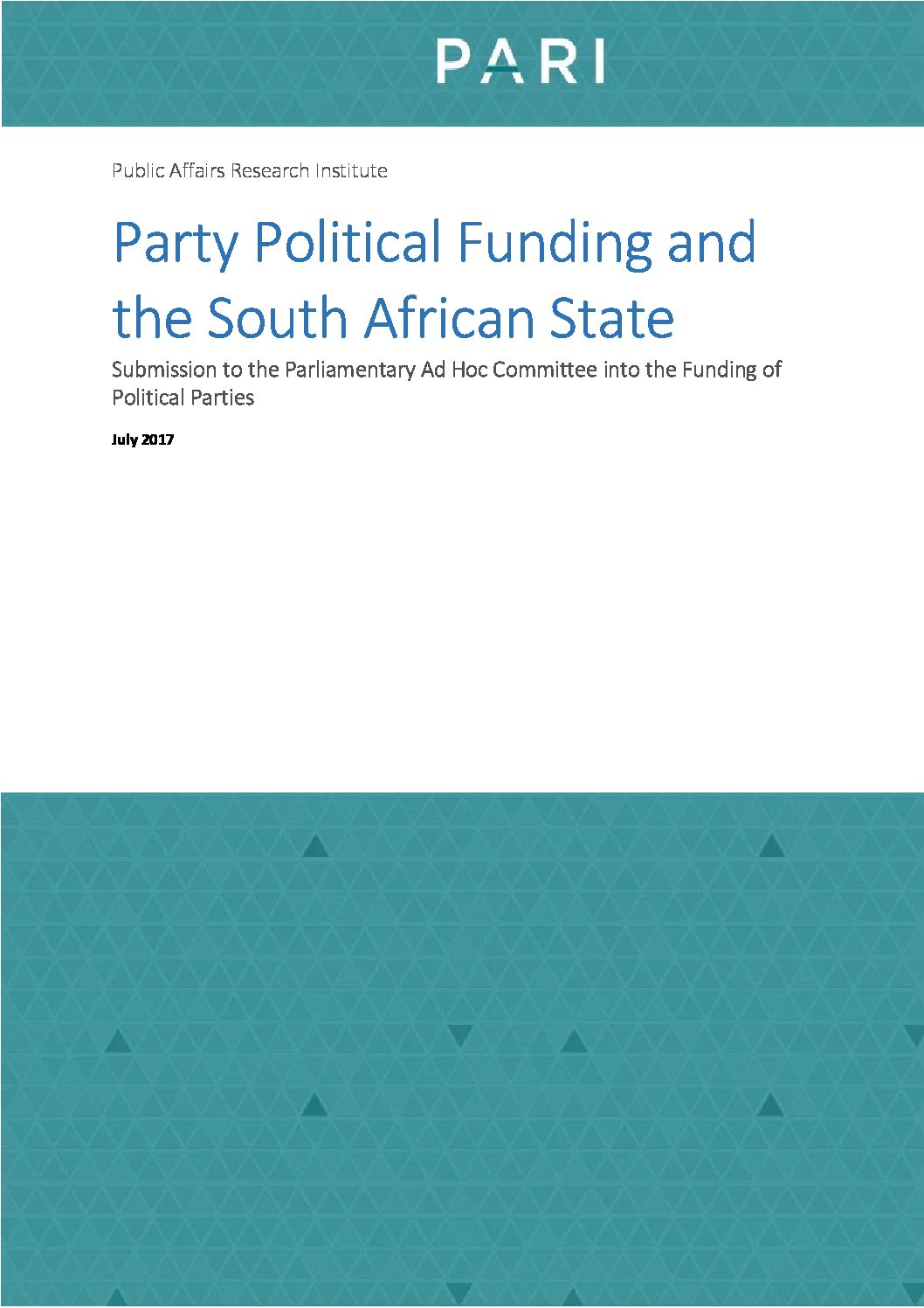WORKING PAPER | AUGUST 2017
Party political funding and the South African state
PARI has prepared a submission to the Parliamentary Ad Hoc Committee on the funding of political parties. Party Political Funding and the South African State, compiled by Crispian Olver, Mbongiseni Buthelezi and Ryan Brunette, will be presented on 15 August – the first of a 3-day hearing process. PARI’s submission takes a careful look at how the current deficiencies in regulation of political party funding impacts on the state’s functioning.
PARI has prepared a submission to the Parliamentary Ad Hoc Committee on the funding of political parties. Party Political Funding and the South African State, compiled by Crispian Olver, Mbongiseni Buthelezi and Ryan Brunette, will be presented on 15 August – the first of a 3-day hearing process.
PARI’s submission takes a careful look at how the current deficiencies in regulation of political party funding impacts on the state’s functioning. First, it has given rise to business models where parties are funded on the back of deals around leveraging state power. For example, finance from the private sector in exchange for favourable regulatory or procurement decisions.
“Power relations in this exchange vary. In some cases, powerful business actors are seen to exploit both state and party in their own interests. In other cases, emerging entrepreneurs are exploited by parties.”
Second, parties make use of state administration resources for campaigning activities, arguably contravening provisions of the Constitution, and other regulatory Acts and codes of conduct.
“Both of these mechanisms flourish in circumstances where the institutional capacity of the state is weak, and often the capacity of the state is deliberately weakened for this purpose. This creates a vicious cycle in which the state is progressively and systematically brought under political control for purposes other than the public interest, blurring the crucial line between party and public administration.”
The paper puts forwards a set of recommendations for party funding reform in the South African context:
- Requiring political parties and party members to report on both public and private funding received to an independent body.
- Disclosing public and private funding of political parties and party members to the public in an easily accessible format.
- Placing restrictions on the receipt of private funding, for instance, by placing a cap on individual amounts from sources, by prohibiting overseas funding, or restricting certain types of funding (e.g. cash receipts or anonymous donations).
- Increasing the amount of public funding available to off‐set the influence of private funding.
- Preventing and prohibiting the use of other state resources to support a political party or candidate.
- Restricting expenditure on campaigns, either in terms of the quantum spent, or the types of activities supported.
- Establishing capacity to monitor, receive complaints, and investigate campaigns to ensure compliance with party funding prescripts.
- The Ad Hoc Committee might consider exploring other innovative mechanisms for using party funding reform to deepen democratic participation.



